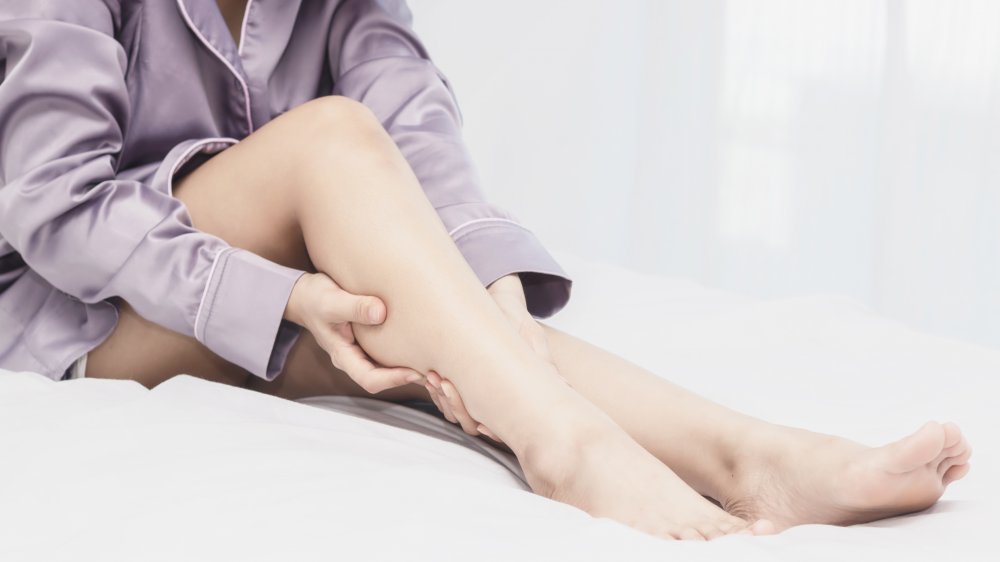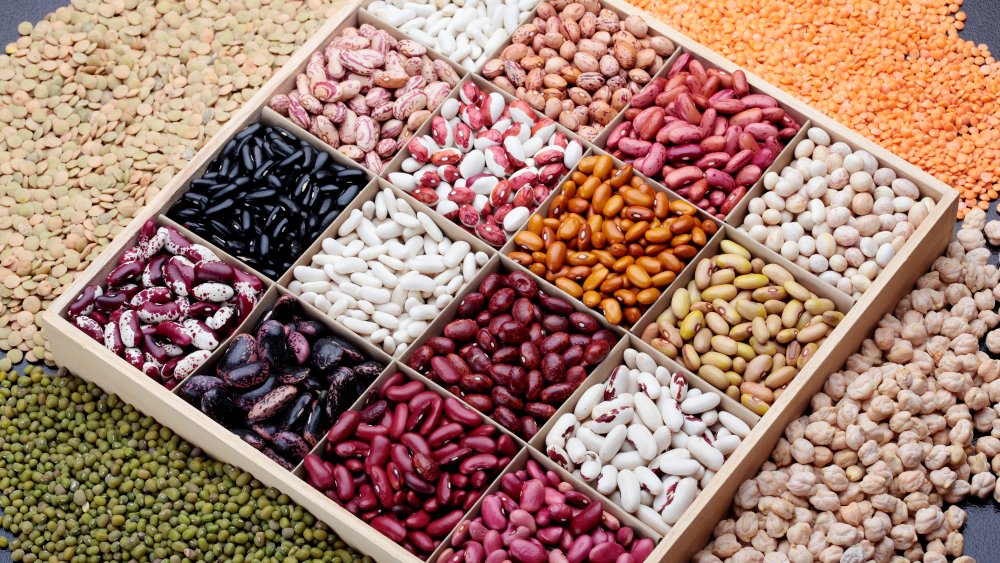The Real Reason You Get Leg Cramps
You don't have to be a seasoned athlete to experience the shooting pain of cramps in your leg muscles. Marathoners and gym-phobics alike can suffer, and it's most often due to "overuse of a muscle, dehydration, muscle strain, or simply holding a position for a prolonged period," according to the Mayo Clinic.
But there is another surprising reason your leg muscles might be cramping up: A shortfall of magnesium in your daily diet. Per the American Society for Nutrition, roughly 50 percent of Americans don't get enough of the mineral. Why is it so important? Magnesium helps control more than 300 of your body's biochemical processes, including the regulation of muscle contractions, per the scientific journal Nutrients. The recommended daily amount is 320 milligrams for women ages 31 and older; for men, it's 420 (via Medical News Today).
Luckily, a few additions to your diet can give you the magnesium boost your body is craving. Just 1 cup of boiled spinach has 157 milligrams, while 1 ounce of almonds has 80. And the sweetest source? Dark chocolate. Just 1 ounce of your favorite dark chocolate has 64 milligrams of magnesium.
More dietary tweaks for leg cramps
You've probably heard that eating a banana is a good way to ward off leg cramps. And it's true; the fruit contains potassium, which is "an essential mineral that can aid communication between muscles and nerves," according to Cooking Light. But there's a much better source of this mineral: Beans. Whether you prefer them baked, refried, or in a dip, just a cup of many types of beans provides double the potassium as one banana.
And it may not be as yummy a choice, but pickle juice — what you normally dump down the drain — is also a proven solution to muscle cramps. A study in the journal Medicine & Science in Sports & Exercise found that drinking 1.5 ounces of pickle juice per 100 pounds of body weight after exercising, erases cramps within two minutes. Researchers suspect the vinegar and mineral rich water helps calm the nerves that trigger muscle spasms.
So, whether you're starting a new exercise regime or simply cleaning out your garage, just a few dietary changes can help keep a charley horse at bay.

